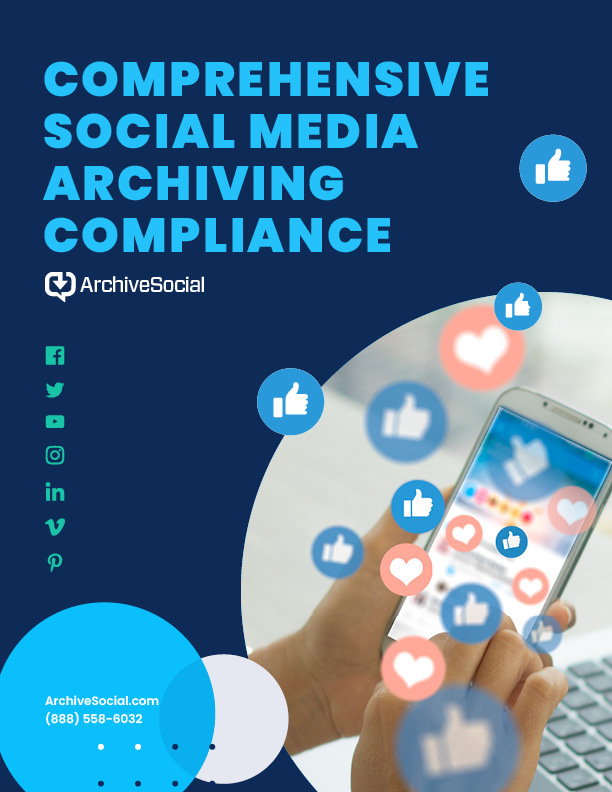Reaching out to a representative from government agencies used to be best achieved via phone, email, or (gasp!) snail mail. But now constituents are typing an @ or # with their messages and posting to Facebook, Twitter and other social media outlets. Being out there in the open draws the attention of the community — which means proper responses are critical. Everything from announcements to policy discussion to emergency response has found a platform through social media. The result is a real-time, ongoing, two-way dialogue between governments and citizens. But with the benefits comes risks. As more and more communication is taking place in this virtual environment, local and state governments are looking for social media archiving methods to retain those tweets, posts, comments, shares and likes for liability, legal requirements and messaging control. Here’s a look at the top three challenges for government social media and how archiving can mitigate those risks.
1. Liability from Third-Party Content
Having an environment for open communication can be positive and productive for public entities, but it also leaves the door unlocked for a third-party commenter to share obscene, offensive, defamatory, illegal and other undesirable content on social media pages. It gets tricky to manage. Not only do local organizations have to navigate comment moderation and First Amendment rights, but also if the third-party poster decides to delete his or her unsavory content it can be lost forever. Losing this information could present a problem if a legal situation ever came up.
The best rule of thumb is for government agencies to post a solid social media policy. It should outline the type of content that might be subject to moderation (for example, obscenities or threats) and make clear that social media communications are considered public record and may be retained and shared. Archiving is an essential element of the policy.
2.Freedom of Information Act (FOIA) Requests and Public Records Compliance
It doesn’t matter if it’s an email or a tweet, communications to and from government entities are public record. Social media compliance with public information laws is new territory though. The established record keeping procedures (such as those for email) don’t necessarily work for social media. But retaining information is necessary to avoid fines and lawsuits from non-compliance with regulations.
As the use of social media continues to grow, the need for a sound social media archiving system is imperative. Using the social media network itself (e.g. Facebook or Twitter) for record keeping isn’t ideal for several reasons. For example, while the platforms do retain records, they aren’t kept over a long period of time. In addition, communications can be deleted or modified by users, data is in different formats and content is dynamic. Other methods, like manual copying and pasting is downright ineffective, not to mention time-consuming. The solution many public entities are turning to is external, automated social media archiving services. These platforms offer an effective and budget-friendly means to manage and comply with records laws by capturing data in context (think expanded comment threads on a post, metadata information, associated images, etc.) and making records of that data easily searchable. Check out this example of a publicly accessible archive from North Carolina’s state government using ArchiveSocial: nc.gov.archivesocial.com/.
3. No Centralized Control of Corporate Message
Allowing government sub-organizations to have their own voice on social media is risky. On one hand, it humanizes what can often feel like faceless entities. One successful instance of this is when a police chief conducted a virtual ride-along by live-tweeting details of his shift. By personally sharing his experience on the job, he connected with citizens and the police department gained more than 144 followers in one weekend.
On the other hand, corporate messaging can become decentralized and fragmented. The key is to create balance. Governments should establish an internal employee social media policy that is practical and enforceable. Record keeping can help centralize social media communications, which enables organizations to maintain control over brand and messaging.
It’s clear that social media is increasingly playing a huge role in the interaction between government and constituents. By combining a strong policy with appropriate technology tools, government agencies can minimize risk and develop a successful social media presence.

